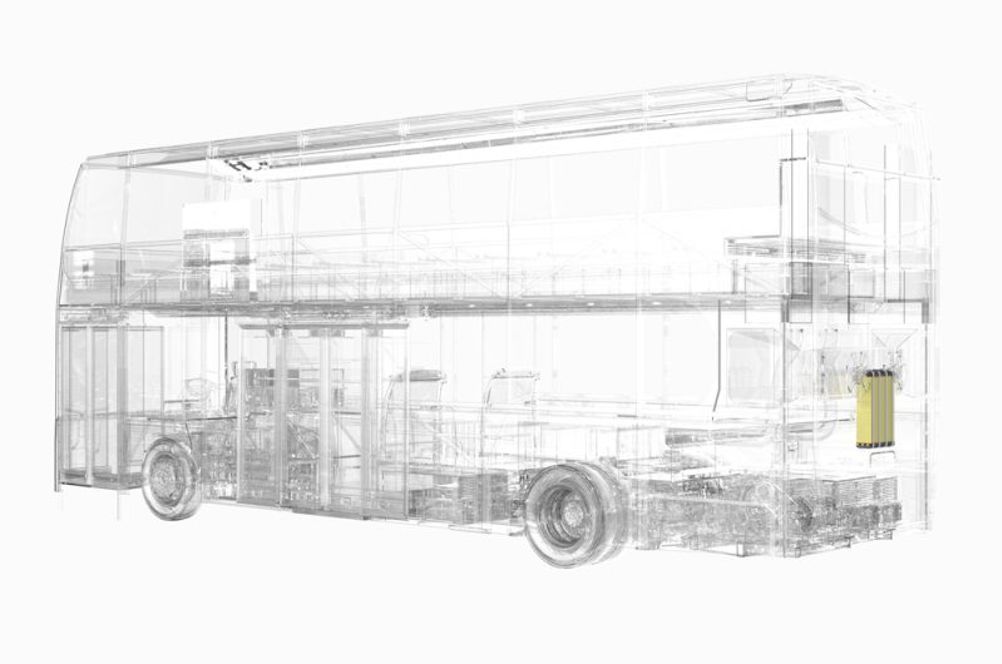Featuring partners Bramble Energy, Equipmake, Aeristech, and Bath University, HEIDI (Hydrogen Electric Integrated Drivetrain Initiative) is developing a ‘first-of-its-kind’ hydrogen-powered double decker bus. One year on from the commencement of the £12.7m venture, HEIDI is now said to be moving from design concept into its manufacturing phase.
Related content
Designs for the fuel cell system, hydrogen storage, and the bus itself are now complete. According to Bramble, its printed circuit board fuel cell (PCBFC) technology has allowed the bus to maintain a capacity of 86 passengers, comparable to existing London double deckers.

Early tests of the fuel cell stack are said to be promising, with simulations predicting a range of up to 280 miles on UK bus routes using 350 bar hydrogen. This too compares favourably with London buses, which typically travel 100-200 miles per day. HEIDI will also be capable of refuelling in around eight minutes.
HEIDI is now set to move into the next phase of the project. This will include the manufacturing of key components including the fuel cell stack, fuel cell system, and hydrogen storage.
“This new milestone for HEIDI brings us one step closer to revolutionising public transport with our innovative PCBFC technology providing a viable path to net-zero emissions for commercial vehicles,” Dr Vidal Bharath, CCO at Bramble Energy., said in a statement
“The ability to maintain passenger capacity whilst achieving significant range and rapid refuelling times showcases the practicality and scalability of our solution. By integrating our fuel cell stacks into the hydrogen double-deck bus, we are not only advancing sustainable transport but also supporting nearly 500 jobs and aiming to prevent nearly 6 million tonnes of CO2 emissions over the next decade. Together with our partners, we are committed to delivering a sustainable, cost-effective, and zero-emission future – one that will benefit both the transport sector and its customers.”
Visit our jobs site https://jobs.theengineer.co.uk/ to find out about some of the latest career opportunities at industry's biggest employers











Comment: New oil is a lose-lose for the offshore economy
The spill map from the <u>every day</u> link in the report looks to be roughly 400km × 400km @ say 100m average depth = 16,000 cubic <b>kilometres...